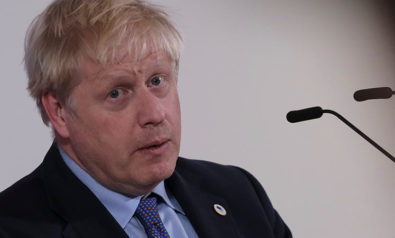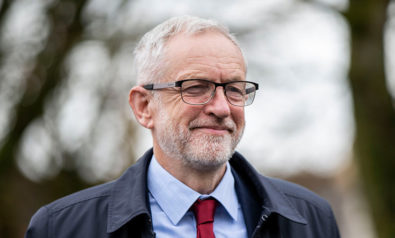You’d be forgiven to think that the only issue for discussion and decision by the public in the UK election is Brexit. As far as Boris Johnson is concerned, it may well be the only issue he wants a mandate for. This may have been the reason he refused to take part in the world’s first TV debate of party leaders on climate change.
But you would also think that the current global momentum in public sentiment and concern regarding climate change is the strongest it has ever been. With Extinction Rebellion demonstrations, the climate school strikes all around the world and heightened warnings from the United Nations Framework Convention on Climate Change and climate scientists in general, there has never been so much coverage of global warming and climate change. With the UN COP25 conference is underway in Spain, and with the UK due to host the COP26 in Glasgow in 2020, climate change would surely climb up the ladder of issues for clarification by all parties involved.
360° Context: Britain Faces a Historic Election
For the exercise, let’s have a look at the two parties’ policies on climate change.
Labour’s manifesto for the election, titled “It’s Time for Real Change,” puts environmental issues under the heading of “A Green Industrial Revolution” at the top of its agenda and places Brexit near the end of the manifesto. This prioritizing of environmental issues is in itself is significant, and some say it is unprecedented in UK politics. The chapter begins with: “This election is about the crisis of living standards and the climate and environmental emergency. Whether we are ready or not, we stand on the brink of unstoppable change.”
If the party wins the election, it will launch a National Transformation Fund of £400 billion ($527 billion) and rewrite the Treasury’s investment rules to guarantee that every penny spent is compatible with our climate and environmental targets — and that the costs of not acting are fully accounted for too. Of this, £250 billion will directly fund the transition through a Green Transformation Fund dedicated to renewable and low-carbon energy and transport, biodiversity and environmental restoration.
Labour further proposes a revenue-raiser in an £11-billion windfall tax on oil and gas companies which would create a “just transition fund” to help shift the UK toward a green economy without causing mass job losses.
In contrast, the Conservative Party’s climate policies, while they are placed on a lower standing than Brexit, nevertheless promise the generation of 80% of UK’s power from renewables by 2030 and bring forward the deadline for a net-zero carbon emissions target from 2050 to 2045. They plan to expand electric vehicle uptake and a moratorium — not a ban — on fracking. But some may be disappointed with the party’s policy freezing fuel duty, banning onshore wind farms, ending subsidies for solar panels and approving significant spending on building new roads.
Interestingly, Brexit will have a number of impacts on climate change, not least of which is the general influence of the EU on environmental protection in general but, more directly, on the availability of funds for any greenhouse gas reduction or renewable-power-generation projects. Also, perhaps more subtly and indirectly, if a no-deal Brexit is to take place — and if the UK is to align itself more closely with the US on trade — then any reference or negotiation on climate issues may be taken off the table.
According to Sky Data, there is a clear correlation between Tory and Labour voters when it comes to Brexit and climate change. Labour voters expect their party to put a higher priority on climate change action and, similarly, Brexit voters place less priority on climate policy. The latest opinion polls show the Conservative Party in front, with a healthy lead over Labour. This may well be due to the Brexit factor.
So, if you were to give a score to the two parties, it would be fair to say that the Conservatives have done a lot of good work since 2010 in cutting emissions, but need to do more in future, while Labour could perhaps have been less cautious in its promises. Much depends on how Brexit is handled, how negotiations take shape post-Brexit, and how much the electorate trusts each party.
However, with just a few days until election day, there is still time for public opinion to shift, particularly as the public absorbs the parties’ other policies such as climate change. As Harold Wilson once said, one week is a long time in politics. But in today’s world, even 24 hours can change everything.
The views expressed in this article are the author’s own and do not necessarily reflect Fair Observer’s editorial policy.
Support Fair Observer
We rely on your support for our independence, diversity and quality.
For more than 10 years, Fair Observer has been free, fair and independent. No billionaire owns us, no advertisers control us. We are a reader-supported nonprofit. Unlike many other publications, we keep our content free for readers regardless of where they live or whether they can afford to pay. We have no paywalls and no ads.
In the post-truth era of fake news, echo chambers and filter bubbles, we publish a plurality of perspectives from around the world. Anyone can publish with us, but everyone goes through a rigorous editorial process. So, you get fact-checked, well-reasoned content instead of noise.
We publish 2,500+ voices from 90+ countries. We also conduct education and training programs
on subjects ranging from digital media and journalism to writing and critical thinking. This
doesn’t come cheap. Servers, editors, trainers and web developers cost
money.
Please consider supporting us on a regular basis as a recurring donor or a
sustaining member.
Will you support FO’s journalism?
We rely on your support for our independence, diversity and quality.
















